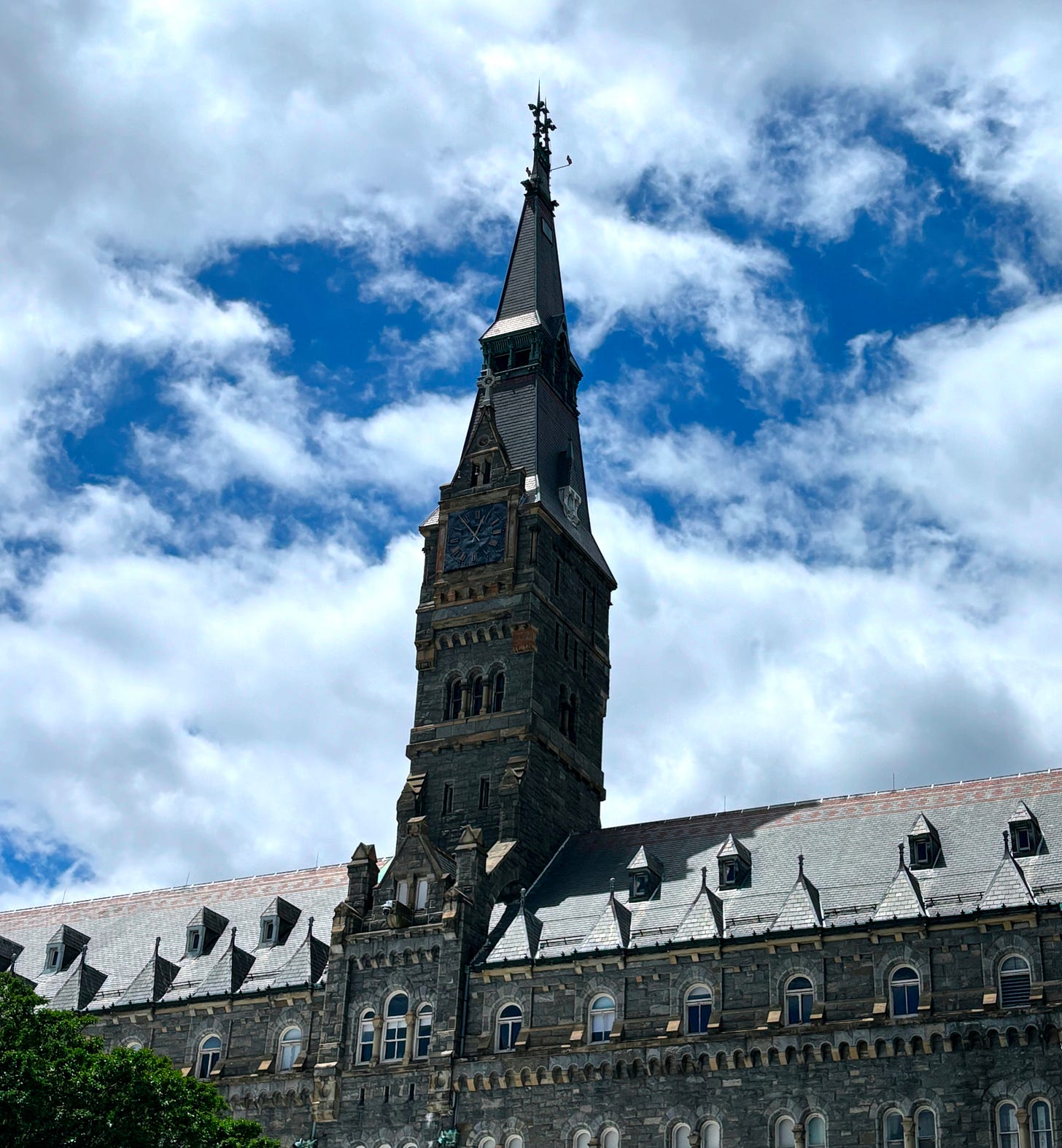Fall Break or Fall Burden?
What are Georgetown students' sentiments regarding the “Mid-Semester Holiday,” which fell eight weeks into the fall semester?
As I boarded my plane back to Washington, D.C., I couldn’t help but feel a sense of discontent. It had been the first weekend I was home in over a month and a half, and I had so many things I wanted to do: see my friends and family, take my dog for a walk at our favorite park, eat at my favorite restaurants, and more. But after just one day off, it felt like I had barely made a dent in this list.
I couldn’t help but wonder – is such a short break normal? The answer: no. Boston College, a similarly rigorous Jesuit university, gave students two days off. Yale University gave its students three days off, and the University of Notre Dame students enjoyed a five day break. Those numbers don’t even include weekends which add additional time for students to relax and have a true break from the stress of college life.
Georgetown’s fall break, which they refer to as the “Mid-Semester Holiday,” fell on October 13th this year, nearly eight weeks into the fall semester, which is followed by Thanksgiving break six weeks later. Over a span of fourteen weeks, students only have one day off. This is a disproportionate break for such a long time of uninterrupted work, especially for an academically rigorous and challenging school such as Georgetown.
One of the major benefits of a break is not just the temporary pause of rigorous schoolwork, but also an opportunity to connect with family and friends from home. A study conducted by the University of Auburn found that students who frequently visited home, on average, reported 9% better mental health scores than students who did not visit home. This reveals that time spent with family at home is linked to stronger mental health for students. This comes at a time when mental health is more important than ever, especially as the suicide rate has increased by 37% over the past two decades; suicide is now the second leading cause of death for individuals between the ages of 10 and 24.
Unfortunately, traveling home is not feasible for many Georgetown students. Traveling home can be extremely expensive for a break of any length, especially for international students who live thousands of miles away. Sometimes, it can be equally expensive and time-consuming for domestic students. This traveling also carves away at the already little time that Georgetown students have for our break, not to mention the frequent delays and cancellations that come with flying and traveling. Julia Chu (MSB’29) described some of these challenges to me, “I would say the whole traveling process takes around a whole day and sometimes a little more. I feel because of that, this short length of fall break is really challenging for me and my family.”
These challenges cause many students to decide not to travel home, costing them time that could otherwise be spent with friends and family. For Jillian Altherr (CAS’29), the financial challenges posed a major challenge in being able to travel home, “it’s a question of sacrificing finances or a much-needed recharge away from campus.” This lack of time to relax leads many students to feel burnt out and demotivated.
However, even for students who stay on campus during the break, the one day off doesn’t provide enough time to refresh and get anything substantial completed. Altherr emphasized the value of an extended break: “just to have a day to spend with friends without worry about academics would greatly help.”
Ultimately, the current state of Georgetown’s “Mid-Semester Holiday” is unsustainable for both students and professors who deserve a longer break. In a day where academic and social stressors are constant, a longer break would be greatly appreciated.
One of Georgetown’s core values is cura personalis – care of the whole person. Extending our fall break for just a few more days would further embody this principle by recognizing that the hard work and dedication students put towards their education are dependent on adequate rest, time with loved ones, and space to recharge mentally and emotionally. Extending fall break would not only honor cura personalis, it would give students the rest they deserve. It’s time for students to start this conversation, whether through student government, petitions, or dialogue with the administration, and hold the University accountable in honoring its commitment to care for the whole person
.




